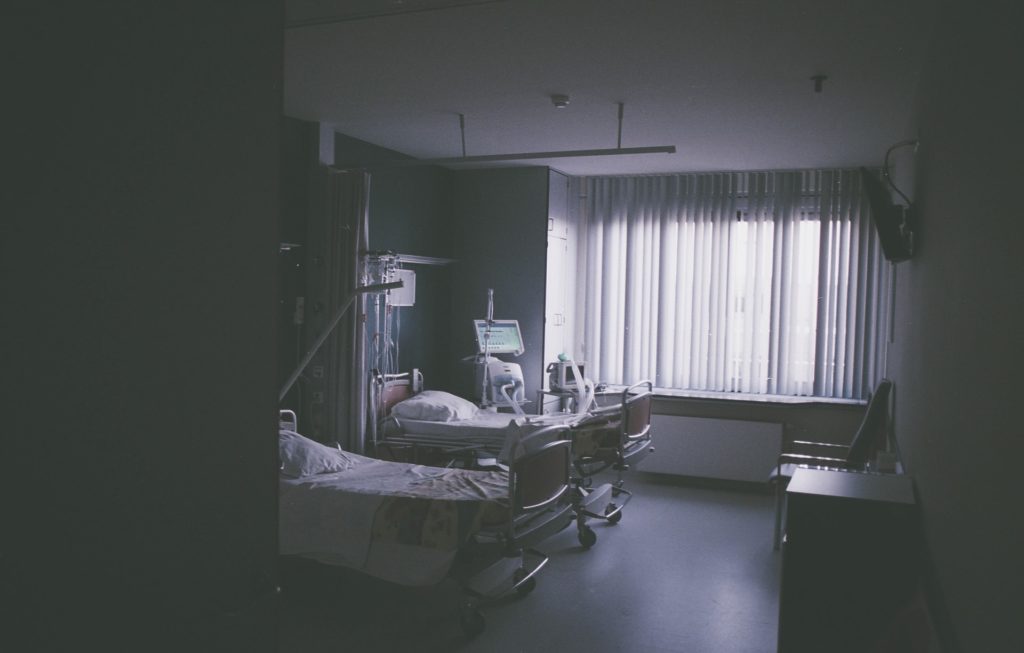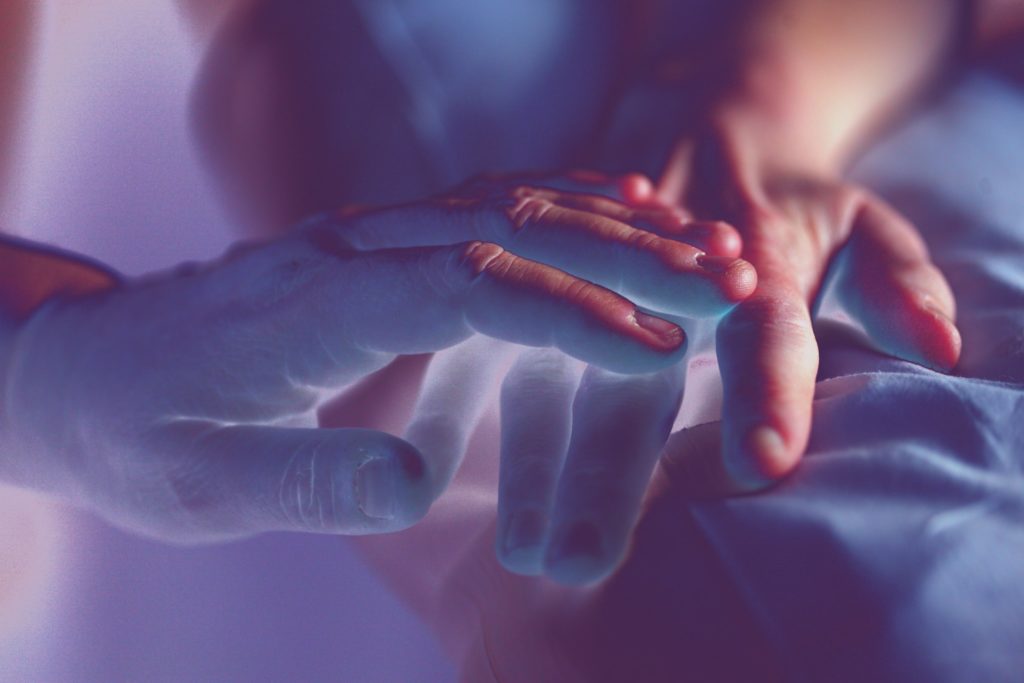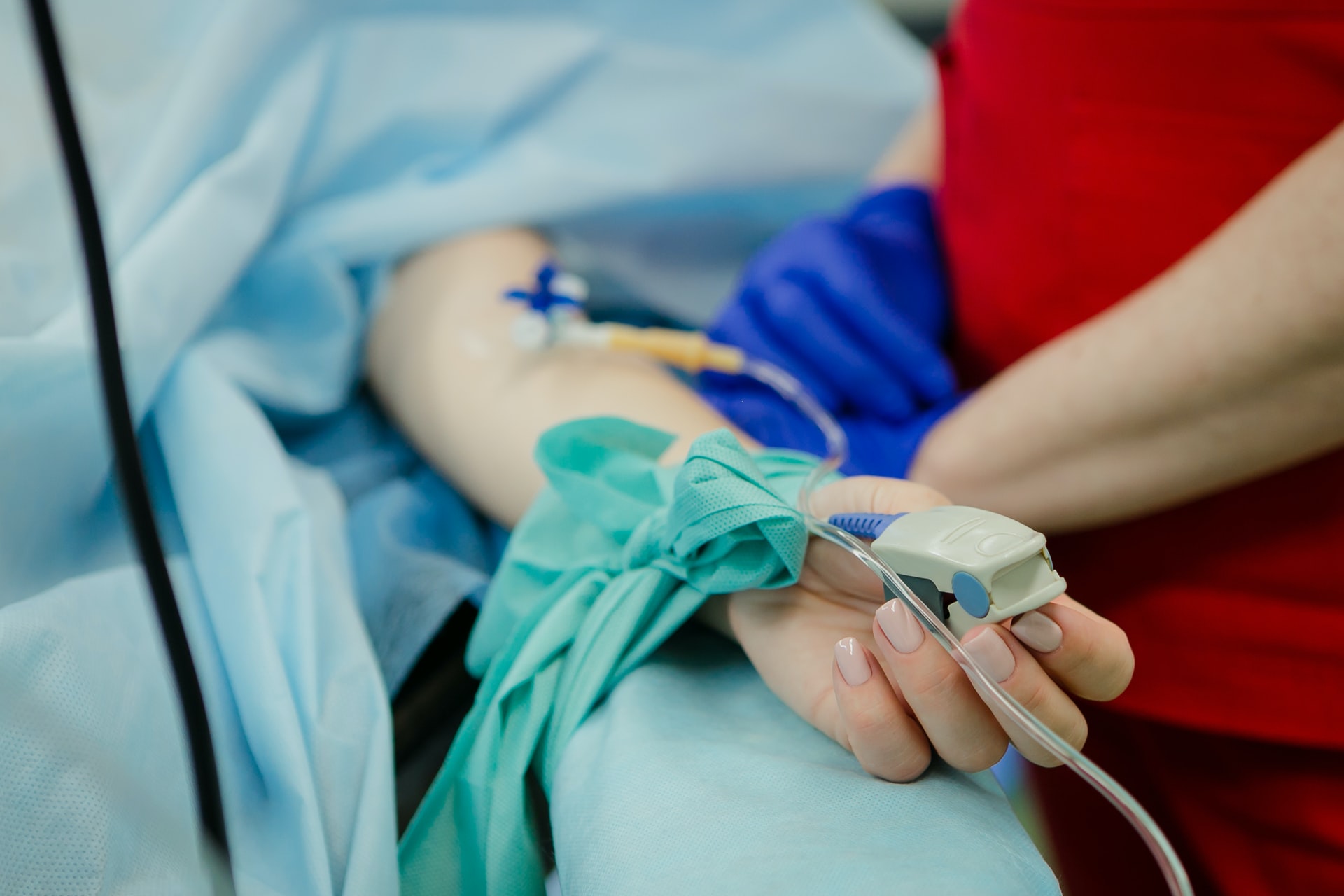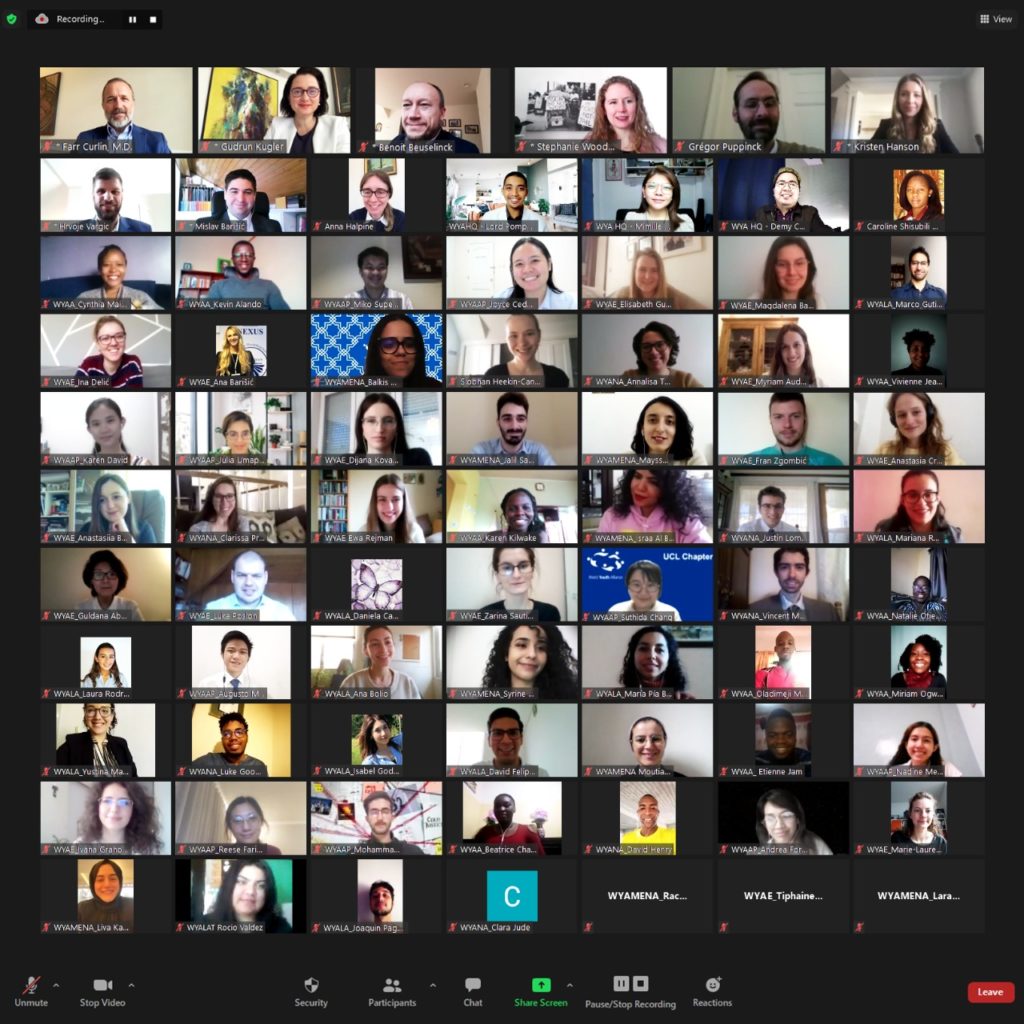“I think it is a very difficult time now that we have to dive through. We can only do this by having hope, and by seeing all of this in a way as a chance, as a privilege, something positive. This is your life, and this is the challenge you have there. Imagine if everything was perfect, you could not grow to be a hero. This is our occasion now to be brave, and it’s not easy for the professionals, the people we heard today, it’s not easy for any of you, but it’s a great possibility to actually do something good, and something that will be remembered in history. In this sense, as this is a privilege, we do need support of each other. For this reason, I’m so grateful for the World Youth Alliance. It is wonderful to be in this together.” MMag. Dr. Gudrun Kugler, Speaker at the ISF
I agree, our time is a difficult time. As a Belgian, I can see the threat that can be brought by legalizing euthanasia and assisted suicide. As stated in the Declaration on Assisted Suicide and Euthanasia that we, delegates from around the world, negotiated during the Forum: “The experience of countries that have legalized these practices has shown that the initial restrictions are quickly eased, and assisted suicide and euthanasia are very soon offered not only to people suffering from terminal illness, but also to people with disabilities, psychological disorders, the elderly, and even to children.”

I think that euthanasia and assisted suicide are choices that arise as consequences of suffering, or of a fear of suffering (for the person concerned and/or others around this person). Just because someone feels useless or someone else believes that our life is useless, does not mean that this person or their life is meaningless, that we cannot get anything good out of it, that the only way to deal with suffering is to escape life. There are two main “emergency exits” to suffering:
First, there are many things in life that have no direct use, but are meaningful (love, friendship, beauty, …). According to Viktor Frankl, even if we do not have the “opportunity to realize values in creative work [active life], a passive life of enjoyment affords him [man] the opportunity to obtain fulfillment in experiencing beauty, art, or nature.” He also explains that the hope to see their loved ones again was one of the main thoughts that kept prisoners in concentration camps alive.
Second, as Viktor Frankl says, even when there are external forces that restrict our existence, when both creation and enjoyment are not possible anymore, “there is also purpose in that life, (…) which admits of but one possibility of high moral behavior: namely, in man’s attitude to his existence. (…) not only creativeness and enjoyment are meaningful. If there is a meaning in life at all, then there must be a meaning in suffering. Suffering is an ineradicable part of life, even as fate and death. Without suffering and death human life cannot be complete.”
In my opinion, the mere fact that euthanasia is legal diminishes this hope, this trust in the human capacity to find meaning in suffering. Instead of that, it sends a deadly signal to all Belgian citizens. Rather than encouraging and uplifting, it sends the message that “we have no right to complain about our suffering, because if we really want to die it’s at our fingertips”. In a way, this promotes suicide (assisted or not) and euthanasia.

When a person deeply suffers, the whole society should be concerned. I do not believe that the logic “I do it but I do not advise you to do it” works. This is why solidarity is so important: we are responsible for each other, even if at the end we cannot choose. Of course, in the end we cannot decide for the other, each person has the final say in his or her own life. Fortunately we don’t have the life of the others completely in our hands. It is incredibly difficult to find balance between the duty of solidarity and the respect of free will.
The choice to live or die is in our hands, but sometimes we need others to remind us that our life has value. Accepting that we do not have the courage to be a hero by ourselves is humility. You are not only a hero when you defend other people’s lives. You are also a hero if you are able to live with your sufferings, whether it be physical or mental. Viktor Frankl highlights this inner capacity that we have in any circumstances, to choose one’s attitude, to choose one’s own way. About the martyrs in concentration camps, he says that “they were worthy of their sufferings; the way they bore their suffering was a genuine inner achievement. It is this spiritual freedom – which cannot be taken away – that makes life meaningful and purposeful.
My grandfather told me he will never admire his sister who suddenly decided it was the day of her death. During that day, she served her guests (my grandparents) with enthusiasm, she seemed completely healthy. She died by euthanasia in the evening. She may have felt like she was the master of her life, that this decision was an incredible act of autonomy, because by doing so she would never feel like she’s a burden for her family. If only she knew what a heavy burden it has been for her family to have her dying in such circumstances. There is a shift of the guilt: she does not feel guilty to be a burden, but her brother, my grandfather, feels so guilty that he didn’t foresee what she was planning to do in the evening, the day he saw her for the last time. She didn’t let him show compassion to her. Euthanasia and assisted suicide are not only the consequence of suffering, but also the cause of new suffering for the loved ones, and/or the doctor who euthanized / assisted for suicide.
When I suffered from depression, I was lucky to be surrounded by good people in my family, but also in the human family as a whole. They supported me, showed me compassion, gave me some time, some love, some joy. Yes, I believe we can find joy in suffering: the joy to be loved. It was such a precious gift for them as well to see that they gave me hope. To express what we feel is so important, but sometimes no words are needed: a presence, a smile, a touch, a flower … the smallest thing can make a huge difference. I do not see how euthanasia and assisted suicide can be a gesture of compassion. This is not what compassion means.
The 18th Annual International Solidarity Forum (ISF) has been an amazing opportunity to examine the theme of Assisted Suicide and Euthanasia. The ISF is an annual training event organized by WYA. The forum brings together certified WYA members from around the world and subject matter experts to participate in discussions and workshops on topics relevant to ongoing international policy debates. WYA has noted with particular concern the growing pressure related to physician-assisted suicide and euthanasia. Delegates examined the “right to die” and what is required to respect each person’s dignity in end-of-life care in light of law, policy, and practice, with a special concern for the protection of the vulnerable.
As the ISF took place, Pedro Sánchez, Prime Minister of Spain was tweeting: “Today we are a more humane, fairer and freer country. The euthanasia law, widely demanded by society, finally becomes a reality. Thanks to all the people who have fought tirelessly for the right to die with dignity to be recognized in Spain.”
I am really disappointed that a Prime Minister has such a big lack of education on what “humanity”, “fairness”, “freedom” and “dignity” are. Thanks to the CTP (Certified Training Program) and this ISF (where we applied these concepts in the matter of assisted Suicide and Euthansia) certified WYA Members are equipped to question the veracity of the Prime Minister’s tweet. This is what I will do hereunder, based on the recently published Declaration that we created during this ISF, and the teachings and testimonies of the speakers, experts in this field.

Humane. Do euthanasia make our society more humane? What makes us human? We want to love and to be loved. Also, there is no human life without suffering, and no human life without death. For me it does not make sense to say that we make a country more human by removing suffering and hope. Nelson Mandela says: “To deny people their human rights is to challenge their very humanity”. As opposed to the “Right to death”, the ”Right to life” is mentioned many times as a human right in International Law: in the Article 3 of the Universal Declaration of Human Rights, Article 2 of the European Convention on Human Rights, Article 6 of the International Covenant on Civil and Political Rights, Article 6 of the Convention on the Rights of the Child, Article 10 of the Convention on the Rights of Persons with Disabilities, etc.
Fairer. Is it fair that some people receive support, love, care, and others are let alone to deal with their own misery? ( To be “fair” means to “treat a group of people equally and not allow personal opinions to influence your judgment”.) I feel particularly worried for people with disabilities. One of the Speakers, Stephanie Woodward, told us that “disability related conditions, such as being a burden to others because of a wheelchair, a terminal condition or age, is one of the main reasons for euthanasia. The disabled community is here to say – loudly – that our quality of life is something we value, and we deserve the same treatment as non-disabled patients.” There is this tendency to think that because a person has limited capacities, the person has less human dignity and the life of this person is less worth living. The simple fact that someone needs assistance does not mean that this life should not be protected equally than another life.
This is something we highlighted in the Declaration: “Legalizing assisted suicide or euthanasia increases the risk of persons being viewed as burdens especially those who are vulnerable due to their age, disability, or sickness. We stand together with all human rights defenders who advocate on behalf of persons with disabilities or those who are ill. (…) No person should ever be viewed as a financial burden or as though they are disposable to society because he or she requires medical, physical, or psycho-social support or care. Every person contributes to society by virtue of his or her existence.”

Freer. Are we really building a society that allows the individual to make free decisions? This is not the way I understand what freedom is. If “to be free” means “to be able to do everything I want to do”, there is no limit to freedom. I think that there is a confusion between freedom and free will. Our free will is an ability to make our own decisions for our life. To make a free choice is to decide by using not only our will but also our reason. We do not just decide to do what we want to do in the moment, but we think about who we want to be, and about the consequences of our choice. Moreover, as we wrote in the Declaration: “Studies indicate that patients who express the desire to undergo these procedures often admit that they do not, in fact, wish to end their lives. Many do so out of fear of pain and other remedial factors.” So we discern: “is this decision helping me to become who I want to be? Is this the impact I want to have on my family and community?”
My grandparents are an important source of inspiration for me. As my Grandmother told me, “there is no freedom if we do not have the means to exercise this freedom”. We emphasized in the Declaration on the fact that we need to provide answers to sufferings: “It is now almost always possible to reduce the amount of pain and suffering the patient experiences, even in cases of terminal illness. We call upon medical professionals to maximize their efforts in providing adequate pain management. It is also necessary to recognize and treat symptoms of psychological conditions, including depression, that often accompany other illnesses and lead the patient to express the desire for suicide or death. Medical approaches that cherish the patient’s dignity such as holistic palliative care offer effective treatments and have been proven to lead to a significant reduction in the number of patients requesting assisted suicide.”
Right to die. As mentioned previously: No international body recognizes the so-called “right to die” nor is it a part of the international legal framework. (from the Declaration).
Dignity. If a person who “qualifies” for euthanasia or assisted suicide decides to wait for his natural death, does this person have less dignity than any other person ? I believe that human dignity is independent of external conditions. No matter who you are (your age, background, culture, if you are very kind or the worst criminal), your life must be respected and protected. Your life is worth living. As expressed in the Declaration: “Although assisted suicide and euthanasia are often described as “death with dignity”, no person can lose their dignity due to their condition, age or suffering. Such terminology implies that there is something dignified about a particular method of bringing about death, but persons retain their dignity as long as they live, and thus all die with dignity, no matter their condition or circumstances of death.”
Once again, I am amazed by the power of words. They have the power to protect and to kill. The World Youth Alliance gives us the opportunity to both receive high-quality education and to enter the debate. Moreover, WYA is building this human family, where everyone has the right to be listened to, consoled, and to be reminded that no matter the circumstances, every human life has infinite value, and is worth being protected until the natural death.The World Youth Alliance gives me hope for our world. As MMag. Dr. Gudrun Kugler told us: “For this reason, I’m so grateful for World Youth Alliance. It is wonderful to be in this together. Now let’s be heroes, together. Our lives and others’ are at stake.”
[su_divider top=”no”]
Published: May 7, 2021
Written by Marie-Laure Denoël, an intern at WYA Europe







